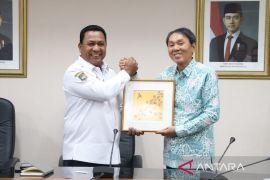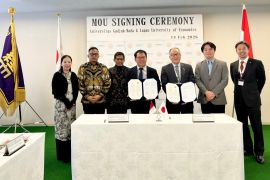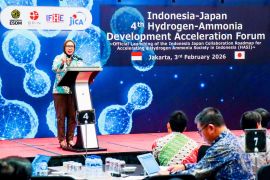The ambassador later remarked that the governments of Japan and Indonesia will continue to improve the health workers admission program which have been implemented for 10 years.
"We will enhance our admission system by coordinating with some ministries and agencies in Indonesia, so that in the future, more health workers would be accepted by Japanese hospitals and nursing centers," the ambassador noted at the Japanese Embassy in Jakarta.
During the release ceremony, which was attended by the representatives of the Agency for the Placement and Protection of Indonesian Migrant Workers Abroad (BNP2TKI) and the Ministry of Health, Ishii congratulated the health workers who have learned Japanese language for six months in Indonesia.
"Before taking the national working certification test, all participants will continue studying Japanese language for another six months in Japan," the ambassador remarked, hoping that the health workers will take good care of their health as they await the final examination day.
The final national test will later determine whether the health workers could continue working in Japan for a longer period of time.
The ambassador further noted that apart from supporting Japans health sector, the workers will help the two countries in strengthening their relations.
"You have served as an important element to maintain the robust relations between Japan and Indonesia," Ishii reiterated to the workers during the release ceremony event.
Responding to the ambassadors speech, the agency's deputy of worker placement Agusdin Subiantoro noted that the agency will continue to improve the qualities of the countrys health workers.
"Indonesian government hopes that by the next year, there would be a rise in the number of Indonesian nurses and caregivers working in Japan," Subiantoro noted in his speech.
Hence, the agency asked the Japanese government to ease the requirements, mainly in terms of working experience for the health workers.
"I hope the authority could revise the requirement of working experience from two years to one year, in order to increase the number of Indonesian citizens working in Japanese hospitals and nursing homes," Subiantoro stated.
Under the framework, the Japanese government had funded all the health workers training and empowerment programs because the countrys hospitals and nursing homes need to assure the quality of their future employees, he further informed Antara after the ceremony.
Moreover, the agency as well as the Health Ministry have regularly monitored and evaluated the Indonesian nurses and caregivers who have already worked in Japan, he reiterated.(*)
Editor: Heru Purwanto
Copyright © ANTARA 2017











